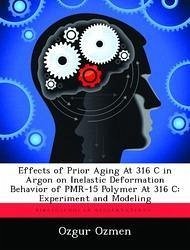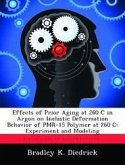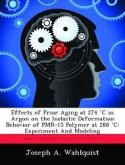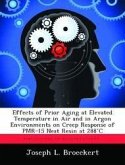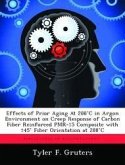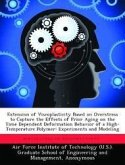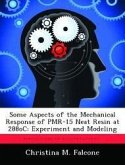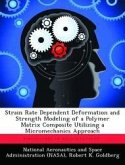The inelastic deformation behavior of PMR-15 neat resin, a high-temperature polymer, was investigated at 316 C. The experimental program was designed to explore the in-uence of strain rate on tensile loading, unloading, and strain recovery behaviors. In addition, the e ect of the prior strain rate on the relaxation response of the material, as well as on the creep behavior following strain controlled loading were examined. The material exhibits positive, nonlinear strain rate sensitivity in monotonic loading and unloading. Early failures occur in the inelastic regime. The recovery of strain at zero stress and creep response are strongly a ected by prior strain rate. The prior strain rate also has a profound in-uence on relaxation behavior. The experimental data were modeled with the Viscoplasticity Based on Overstress (VBO) theory. Additionally the e ects of prior aging at 316 C in argon on the time (rate)-dependent behavior of the PMR-15 polymer were evaluated in a series of strain controlled experiments. Based on experimental results, it was stated that the specimens, which are subjected to prior aging in argon for more than 50 h, exhibit only quasi-linear behavior until failure.
Hinweis: Dieser Artikel kann nur an eine deutsche Lieferadresse ausgeliefert werden.
Hinweis: Dieser Artikel kann nur an eine deutsche Lieferadresse ausgeliefert werden.

